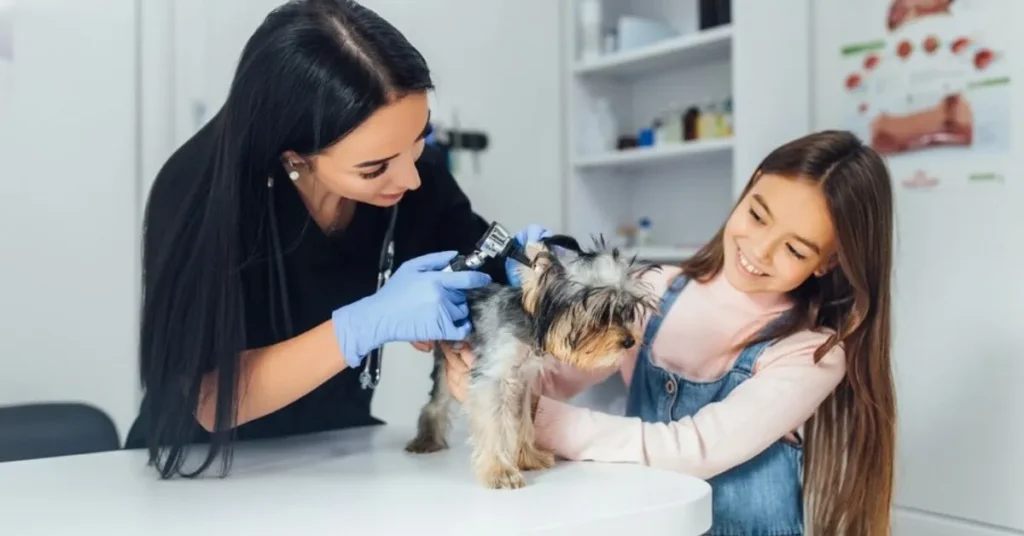Every pet owner wants their furry, feathered, or scaled friend to lead a happy and healthy life. Maintaining your pet’s health is crucial for their well-being and can prevent numerous issues down the road. This guide offers essential tips and practical advice on how to keep your pet healthy, from regular checkups to emergency preparedness.
Contents
Regular Health Checkups
Taking your pet to the vet for regular checkups is one of the best ways to ensure they stay healthy. But how often should you go? Most vets recommend an annual checkup, but puppies, kittens, and senior pets may need more frequent visits. These visits allow veterinarians to monitor your pet’s overall health, catch potential issues early, and update vaccinations. During a checkup, your vet can assess weight, dental health, and any behavioral changes. Establishing a routine schedule, typically once a year for healthy pets and more frequently for older or ailing pets, ensures that your furry friend remains in peak condition and receives timely care when needed.
Nutrition
Proper nutrition is vital for your pet’s health. A balanced diet supports their growth, energy levels, and immune system. Choose high-quality pet food that meets their specific needs based on age, size, and health conditions. Consider incorporating organic supplements to enhance their diet. These can help with joint health, coat quality, and overall vitality. Visit in-store and online retailers to learn more about organic supplements that may be a good fit for your pet. To make informed choices about your pet’s nutrition, research organic supplements and consult your veterinarian for tailored advice.
Exercise and Mental Stimulation
Regular exercise and mental stimulation are essential for your pet’s physical and mental well-being. Activities like walking, playing fetch, or engaging in interactive toys help prevent obesity and promote a healthy weight. Mental challenges, such as puzzle feeders or training sessions, keep their minds sharp and reduce boredom-related behaviors. Aim for daily exercise tailored to your pet’s needs, considering their age and energy levels. Ensuring a mix of physical activity and mental engagement fosters a happy, well-rounded pet.
Grooming
Grooming is an essential aspect of pet care that contributes to both hygiene and health. Regular brushing removes loose fur, dirt, and debris while helping to prevent matting and tangles. It also promotes healthy skin and coat by distributing natural oils. Depending on the breed, grooming needs may vary; long-haired pets typically require more frequent grooming than short-haired ones. Additionally, regular bathing helps maintain cleanliness, and routine nail trimming prevents overgrowth and discomfort. Integrating grooming into your pet’s routine fosters a strong bond and offers an opportunity to check for any skin issues or abnormalities.
Vaccinations and Preventative Care
Vaccinations are a critical component of your pet’s health maintenance plan. They help protect against various infectious diseases that can be serious or even fatal. Core vaccines, such as those for rabies, distemper, and parvovirus, are essential for all pets, while non-core vaccines may be based on your pet’s lifestyle, surroundings, and exposure risk. Regular consultation with your veterinarian ensures that your pet receives the appropriate vaccinations at the right times, keeping them safe as they age.
Preventative care goes hand in hand with vaccinations. This includes regular screenings for parasites, dental care, and appropriate treatments for conditions like heartworm and flea infestations. Preventative measures also involve maintaining a safe environment, ensuring proper hygiene, and knowing the signs of illness. Together, vaccinations and preventative care form a strong foundation that helps your pet live a long, healthy life while minimizing potential health risks.
Common Health Issues
Awareness of common health issues is vital for every pet owner. Pets can suffer from a range of conditions, including obesity, dental problems, allergies, and skin infections. Obesity, often related to poor diet and lack of exercise, can lead to serious complications like diabetes and joint problems. Dental disease is another prevalent issue, affecting not just oral health but also overall well-being. Regular veterinary checkups can help identify these issues early. It’s essential to monitor your pet for signs of discomfort or changes in behavior, as these can indicate underlying health problems. Early detection and intervention can significantly improve your pet’s quality of life.
Emergency Preparedness
Being prepared for emergencies is essential for pet owners. Having a plan can make a difference in stressful situations. Create an emergency kit that includes food, water, medications, and important documents such as vaccination records. Familiarize yourself with nearby veterinary clinics and emergency services. Additionally, practice evacuation routes and ensure your pets are comfortable with being handled in case they need to be transported quickly. Regularly update your emergency plan and kit to reflect any changes in your pet’s needs or circumstances. Being proactive can help protect your furry companions during unexpected events.

Maintaining your pet’s health involves a combination of regular checkups, proper nutrition, exercise, grooming, preventive care, and emergency preparedness. By following these guidelines, you can ensure your pet remains healthy and happy, strengthening the bond between you and your beloved companion.

